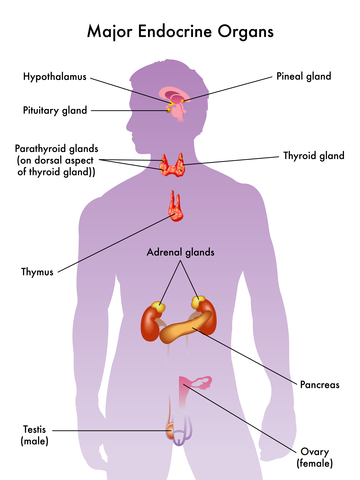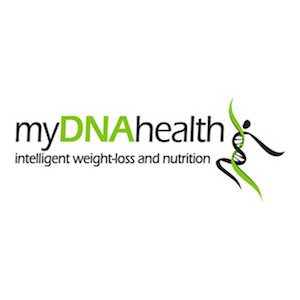Many more women than men are affected by thyroid disease – a condition that is often undiagnosed. It is common for women to experience an underactive thyroid at the time of menopause and oestrogen levels are falling. Fortunately once diagnosed, thyroid disease is treatable. Under the supervision of your doctor, supplements and diet can complement conventional medical care.

What is hyperthyroidism / hypothyroidism?
The thyroid gland consists of two large lobes situated at the base of the throat and produces hormones essential for the proper functioning and maintenance of all the cells in the body. If the gland releases too much thyroid hormone – a condition known as hyperthyroidism – the body runs too fast like an overheated engine. Conversely if it releases too little – a disorder known as hypothyroidism – the body’s metabolism can become sluggish. Symptoms of either condition can appear very quickly or may develop gradually, often mimicking long-term depression.
What exactly goes wrong?
People with thyroid imbalances tend to fall into one of the following categories:
- Under-functioning pituitary doesn’t produce sufficient thyroid-stimulating hormone (TSH) and the thyroid fails to work
- T4 (thyroxine) production is low
- T4 is not converting into T3 (triiodothyronine – active form of T4)
- Thyroid antibodies (anti-TPO and anti-TG) attack the thyroid gland
What are the symptoms of hypothyroidism?
Symptoms of low thyroid function include:
- Tiredness – especially after eating
- Weight gain – especially round the middle
- Feeling cold – especially in the hands and feet
- Hair loss
- Depression and/or anxiety
- Poor memory and concentration
- Fluid retention
- Constipation
- Brittle finger nails and hair and dry, flaky skin
- Headaches/migraines
What are the symptoms of Hyperthyroidism
- Mood changes, restlessness, anxiety, difficulty sleeping
- Weight loss, despite increased appetite
- Diarrhoea
- Rapid heartbeat, increased sweating, intolerance of heat
- Goitre (painless swelling in the throat), bulging, irritated eyes
- Muscle weakness
- Lightness or absence of menstruation
Always see your GP or Medical Practitioner if you are experiencing any of the above symptoms for a professional diagnosis.
What causes it?
- Iodine deficiency
- Excess dietary intake of goitrogens e.g. soy, kale
- Surgical removal of part or all of the thyroid gland
- Autoimmune destruction of the thyroid gland
- Certain drugs e.g. lithium, steroids & beta-blockers
- Heavy metal toxicity
- Chronic stress/anxiety
- Calorific restriction and fasting
- Excessive endurance exercise
- Radiation
- Inflammatory disorders with increased interleukin 6 (IL-6) and/or TNF-α production
- Antioxidant status/free radical load
- Pesticides and chemicals
- Zinc and/or selenium deficiency
- Cigarette smoke
- Aging
- Burns
- Chronic alcohol intake
- Insulin-dependant diabetes
- Surgery
- Liver/kidney disease
- Sleep deprivation
- Poor liver detox pathways (sulphation, glucuronidation)
- Injury, illness, trauma
How can Nutritional Therapy help with Hyperthyroidism / Hypothyroidism?
If you have your thyroid tested by your doctor its very likely they will report everything to be fine. Unfortunately the tests are very crude and your thyroid would have to be severely underactive indeed before it would show up as altered blood levels. The ‘quoted’ normal range is so wide, it is relatively meaningless – you could be 50% down on ‘average’ and still said to be within normal limits.
To test your own thyroid, there is a simple temperature test developed by Broda Barnes that is now widely used by nutritionists. In addition, Natural Solutions recommends Thyroid Profile testing to establish levels of all thyroid hormones including antibodies to rule the ever increasing (and undiagnosed) condition of Hashimotos Thyroid Disease. The thyroid test would examine T3, T4, TSH, FT£/FT4 and Thyroid antibodies.
Supplementation and dietary recommendations are essential for patients suffering from thyroid disease and will be useful tools to work alongside medication and supplementation. Natural Solutions will provide you with thyroid testing, supplementation, herbal recommendations and lifestyle suggestions to give you a more natural and complementary approach to thyroid health.







